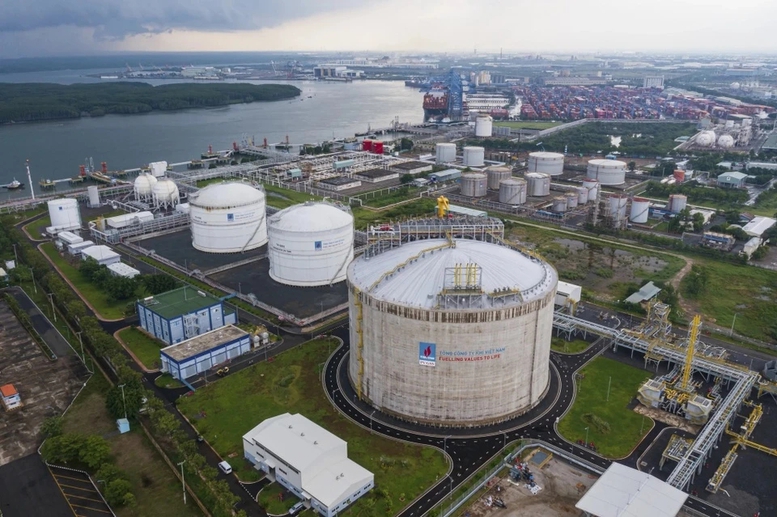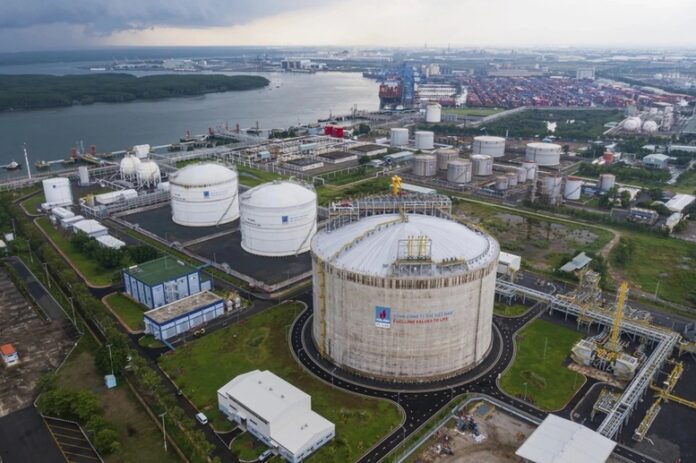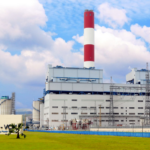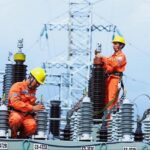
The government amends regulations on the development mechanism for gas-fired power projects
Decree No. 100/2025/ND-CP amends and supplements several contents of Article 15 of Decree No. 56/2025/ND-CP to provide more specific regulations on the mobilization mechanism for gas-fired power projects using domestically exploited natural gas, in line with the State’s policies on power development and practical needs in the upcoming period.
Specifically, the name of Article 15 is amended and supplemented as “Mechanism to ensure the consumption of domestically exploited natural gas; principles for converting fuel prices to electricity prices and minimum long-term electricity output for gas-fired power projects.” The Ministry of Industry and Trade states that the amendment of the name of Article 15 does not change its content but only ensures comprehensiveness and lists all the contents assigned in Clause 2, Article 12 of the Law on Electricity.
At the same time, Decree No. 100/2025/ND-CP amends and supplements Clause 3 and Clause 4 of Article 15 of Decree No. 56/2025/ND-CP on the development mechanism for gas-fired power projects.
Development Mechanism for Gas-fired Power Projects Using Domestically Exploited Natural Gas
a) Gas-fired power projects using domestically exploited natural gas shall be operated and mobilized at the maximum level according to the gas supply capacity, meeting the fuel constraints, power capacity, and available electricity output of the gas-fired power projects, as well as the demands and technical constraints of the national power system;
b) The regulation in point a of this Clause shall apply to gas-fired power projects for which the competent state agency has issued a written notification of acceptance of the investor’s completion of the work and started operating to generate electricity using domestically exploited natural gas before January 1, 2036. The application of the mechanism prescribed in point a of this Clause shall continue until the gas-fired power plant no longer uses domestically exploited natural gas for power generation.
c) In case the supply capacity of domestically exploited natural gas cannot meet the electricity generation needs of the gas-fired power plant project, the Power Seller and the Power Purchaser shall agree and unify the fuel use and electricity price plan in the power purchase and sale contract according to the current regulations.
Development Mechanism for Gas-fired Power Projects Using Imported LNG
The minimum long-term electricity output of the gas-fired power project using imported LNG shall be agreed and unified by the Power Seller and the Power Purchaser in the power purchase and sale contract, ensuring the following principles:
a) The minimum long-term electricity output shall not be lower than 65% of the multi-year average electricity output of the gas-fired power project. The minimum long-term electricity output shall be applied within the term of principal and interest repayment but not exceeding 10 years from the date of putting the project into operation for power generation;
b) After the period of applying the minimum long-term electricity output, the electricity output or the proportion of electricity output settled at the contract price for the remaining years shall be agreed and unified by the Power Seller and the Power Purchaser during the negotiation and agreement of the power purchase and sale contract according to the relevant regulations;
c) The multi-year average electricity output shall be determined according to the Regulations on the method for determining the price of power generation services; principles for calculating electricity prices to implement power projects; the main contents of the power purchase and sale contract issued by the Minister of Industry and Trade and the provisions in the power purchase and sale contract.
d) The regulations in points a, b, and c of this Clause shall apply to gas-fired power projects using imported LNG for which the competent state agency has issued a written notification of acceptance of the investor’s completion of the work and started operating to generate electricity using imported LNG before January 1, 2031.
Responsibilities of the Power Purchaser, Power Seller, National Power System Dispatcher, and Electricity Market Operator
Besides, Decree No. 100/2025/ND-CP also amends and supplements point a of Clause 5 and point a of Clause 6 of Article 15 of Decree No. 56/2025/ND-CP to be in line with the amended contents in Clause 3 and Clause 4 of this Article.
Specifically, the Power Purchaser and the Power Seller shall be responsible for negotiating, agreeing, and unifying specific contents in the power purchase and sale contract, complying with the regulations in this Article and other relevant laws.
The National Power System Dispatcher and the Electricity Market Operator shall be responsible for making plans for the operation of the power system, conducting transactions in the competitive electricity market, ensuring compliance with the regulations in this Article and the laws on the operation of the competitive electricity market at all levels and the operation and dispatch of the power system issued by the Minister of Industry and Trade.
Decree No. 100/2025/ND-CP takes effect from May 8, 2025.
The Energy Giant’s Trillion-Dollar Hold on Vietnam: A Key Project Still Stalled
The corporation is currently developing two key energy projects: the Son My II Gas-fired Power Plant and the Son My Liquefied Natural Gas (LNG) Port.
The Art of Inflation: Unveiling January 2025’s CPI and Core Inflation Dance
Some localities adjusted healthcare service prices according to Circular No. 21/2024/TT-BYT, and there were increases in transportation and food prices due to higher travel and shopping demands during the Tet holiday. These were the main drivers of the 0.98% month-over-month rise in the consumer price index (CPI) for January 2025. Compared to January 2024, the CPI rose by 3.63%, while the core inflation rate for January 2025 increased by 3.07%.
The Power Sector’s Prominent Policies in 2024
In 2024, the power industry witnessed a series of events and policy changes. Notably, EVN was authorized to increase electricity prices on a quarterly basis, the amended Electricity Law was passed, and regulations on renewable energy were introduced. These developments marked significant shifts in the industry’s landscape over the past year.





















